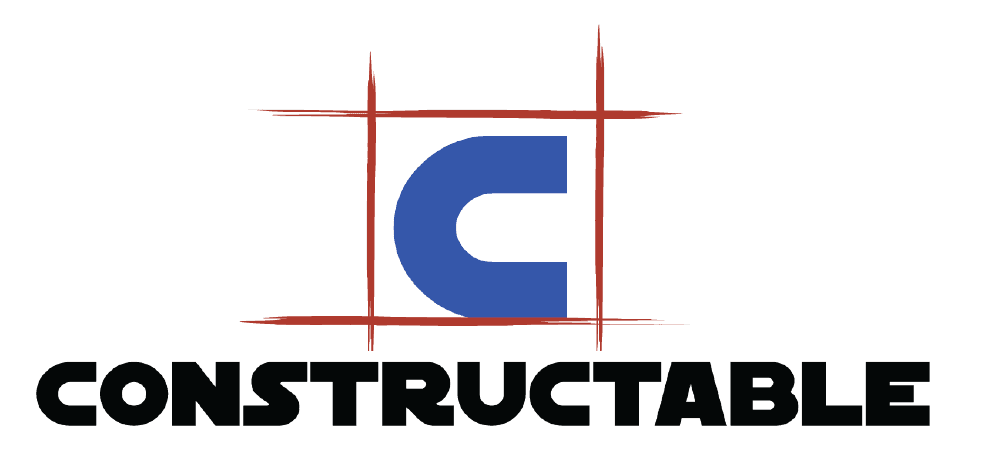
Heroism in the Workplace
Heroes are for movie theaters, not the workplace.
If you try to do everything you won’t be good at anything.
Business owners and top managers know that they have to get things done. In this ever-changing economy, complete with occupational half-life (the amount of time it takes for half of your formal training to become obsolete), raging competition, undercut bids, ever-changing landscape, e-commerce “skimmed off the top” fees, qualification systems, process management, quality assurance certification, and varying opportunities for growth and threats to your business (sometime being the same thing), it is apparent that unless you act, your business will be left behind. But don’t think for a second that you can (or should) do all of this. Both not keeping up and trying to do too much are the quickest ways to obsolescence.
Leaders who try to be a hero (who try to be good at everything) will only limit their team, organization, company. Instead of trying to get what he or she wants (growth, change, action), the hero will do the exact opposite by requiring so much to go through him or her as the only channel.
Leaders are indeed channels, but should never be the bottleneck. Once you realize that you are the bottleneck, it is too late; you’ve been the bottleneck for far too long. Others have realized it but by the time you admit to it, they have either found new jobs, grown weary of your leadership, or planned the promotion of other team members in your spot, someone who could get things moving.
While not fair, this is simply how the business world is these days: fast-paced, ever-changing, quickly-bypassing those who do not also adapt. Below are 5 methods leaders use to attempt to solve this dilemma and compensate for what they know is a fast-approaching problem of heroism in the workplace:
RESPONSE 1: IGNORE THE WARNING SIGNS.
Very little needs to be said about this approach (as it is so suicidal): simply ignoring the warning signs will solve nothing and serve to only frustrate your team members.
Upside: You can still think yourself ahead of the game, in charge, constantly delivering, and the hero.
Downside: You are living in a dream world. None of your reality will be able to be trusted. And others will stop trusting you as well. And your dream world will last only so long. The “hero” who engages in this kind of response will soon find himself or herself out of a job, perhaps not even knowing that they’ve been fired since they live in this dream world.
RESPONSE 2: CLAMP DOWN FOR CONTROL.
“If you want something done right, then you have to do it yourself,” is the rallying cry of this hero. “Who is the best one to do the work? Well, me, naturally, the hero.”
(NOTE: This is how you got to this problem in the first place.)
It is actually true: if you want the best work done, then give it to the person with the passion, knowledge, and who feels personal responsibility for its delivery. You truly are the best person for the job; that’s why you’re in leadership. However, it is not a long term solution; and it will burn you out quickly if you have to be the point person for every single task. Clamping down for control is only a short term solution that will never allow you to grow later. You’ll bump up to your limitations time and again.
This is a very common solution; it is, however, the last resort you can do personally. If something else goes wrong, then you have nothing left to rely on and can only apologize for the fumbled work.
Upside: The work you keep “close to the chest” will stay high quality. You’ll be able to produce some return. Everyone will know you’re still in charge. You can still look like the go-to person in certain projects.
Downside: You will have to let other things slide. You won’t be able to keep all of the projects moving. You will become known as a bottleneck as this is not really a strategy to get ahead, but to simply keep your head above water.
RESPONSE 3: SKILL UP TO MEET THE CHALLENGE.
There is always the option to learn and grow as an asset in your company and career. This is, in fact, a very desirable one as you are gaining new insight and skills. But your team will still be overtaxed, the problem remains immediate even though your skilling up is not always that fast, and any growth in you as a leader has not necessarily translated to taking care of this project. You might be reborn in skills, but those theoretical applications might not be what is needed to push the organization forward. Plus, quite often it takes a long time to get through that course, trade school, certification, college degree, etc. that you so desperately need.
Upside: You will indeed become more valuable to your organization by gaining treasured skills.
Downside: Your organization might have moved on past you while you try to skill up. Indeed, while skilling up is a great way to improve on yourself, who has time for formal training if you are already overwhelmed? Additionally, you will continually have to skill up. If you are just getting back to having your head above water, how are you going to get ahead for the next time the tide rises? You’ll also have to invest a significant amount of time, money, and energy into this formal training, not to mention your own work suffering if your attention is split.
RESPONSE 4: GIVE WORK AWAY RECKLESSLY.
If your logjam becomes so great and you are unwilling to engage in any of the other options presented here, then you can only give jobs and work away in hopes that someone catches them and does something good with them. The leader doing this will assign the work, retain leadership, and even appear magnanimous at trusting his or her employees so much, but will lose core controls, credibility, and visibility to key projects going on in his or her team. This is a desperate measure to simply “get my boss off of my back” to show something being produced, even if it’s not what your boss asked for.
“We did it. We don’t know what we did or how we did it, but we did something.”
Upside: You can get a lot more done.
Downside: The work you give away will, likely, be low quality because you have not quality assured it, inspected it, and kept a tight control on it. And you might not actually know what is getting done; and your employees might not know either. They will choose their own priorities, become misaligned with the focus of the company or team, and become angry when you require accountability from them. Additionally, this approach requires that you actually have competent team members, which–as everyone knows–is not a given in the business world. Just because someone has a job does not mean they are ready for it or are actively engaged in it.
RESPONSE 5: BUILD A TEAM TO COMPLEMENT YOUR STRENGTHS.
The solution proposed here is to have the courage and humility to self-evaluate and admit to your limitations, ignorance, and weaknesses. A scary proposition to be sure, but it is the only one that will get you real change and enduring ability to keep the work moving. We spend so much time developing our weaknesses when they, most likely, will not get that much better. These weaknesses are just that for a reason. Likely you do not even know how to improve them. Far better is it to develop your strengths (which soon have a snowball effect of multiplying in on itself) and to staff up to complement your strengths by catching the things that are your weaknesses.
“Don’t let your weaknesses get in the way of you reaching your full potential. Focus on what you do well, and capitalize on that. You are in a position of leadership for a reason. Your strengths helped you get there.” –John Maxwell, original quote HERE
Why should you, as the leader, be good at everything? Likely, it is not being good at everything that got you there. It was focusing on your best skills, delivering a fantastic product, and being better than anyone else in your field. These are the ways to get ahead consistently. It is hopeless to be the best at everything, nor should you be. If you were, your team would begin to think, “Why am I even here?” “Why should I do anything when my boss gets all the credit anyway?”
Upside: You are building a team that can accomplish more than any one individual; and your team is going to be prepared long after your skills meet their limit. You don’t have to do it all. You don’t have to exhaust yourself by trying to be good at things that you’ll likely not improve very much or quickly, your weaknesses. Your team will have the freedom and opportunity to prove themselves. You will be actualizing the potential of your team and yourself.
Downside: You will have to take a hard look at yourself and realize where you come up short. You will no longer be known as the hero (instead you’ll be looked at as the leader of heroes. Far better to be a leader of leaders, a hero of heroes, a boss of bosses, than to be the only shining star).
“Focusing on weaknesses instead of strengths is like having a handful of coins – a few made of pure gold and the rest of tarnished copper – and setting aside the gold coins to spend all your time cleaning and shining the copper ones in the hopes of making them look more valuable. No matter how long you spend on them, they will never be worth what the gold ones are. Go with your greatest assets; don’t waste your time.” –John Maxwell, original quote HERE
In order to avoid heroism in the workplace, build a team to complement your strengths. This takes the humility and courage to recognize where you yourself have failed or are failing. It is the only long term solution to your needs.
That is where the experts come in to partner with you to move you forward and take action.
Here at Constructable we want to be that part of your team that you can leverage for the greater result. We can come alongside you to complement your strengths. Our team is highly-skilled in unique ways that fill in the gaps for any leader who wants action done. Drop us a line here at constructable.pro to see how we can come alongside you to make your ideas into reality.
ACTION POINT: (With each article we will present one action point as a measurable takeaway for any owner or executive sponsor.)
Evaluate yourself now, before it’s too late.
In later blogs here at Constructable we will discover how to see the warning signs and hit the panic button of “heroism” in the workplace before it’s too late. But for now, simply take an in depth, honest evaluation of yourself to see if you are on the spectrum of becoming a dinosaur because of any of the reasons above.
Here are a few deep-probing questions you need to have answers to:
- Has my workload become overwhelming despite your best efforts?
- Is my team fully leveraged or am I holding onto things needlessly?
- If my team is fully leveraged, what is the way forward?
- Do I need to learn new skills in the workplace?
- How long will those skills take to learn?
- Will it be too late to apply those skills after I have learned them?
- Does my team have the right skill set to meet the challenges we are being presented with?
- Is it my weaknesses that are slowing us down?
- Is it my strengths that are slowing us down?
- Where can I get resources to strengthen my strengths?
- Where can I hire to complement my strengths?
- Am I ignoring anything in my work life that needs attention?
- Am I clamping down to keep control of what needs doing?
- Am I giving away work too recklessly, without keeping some controls and quality assurance in place?
- What could my team do if we had more bandwidth, expertise, and get-it-done-ness?





